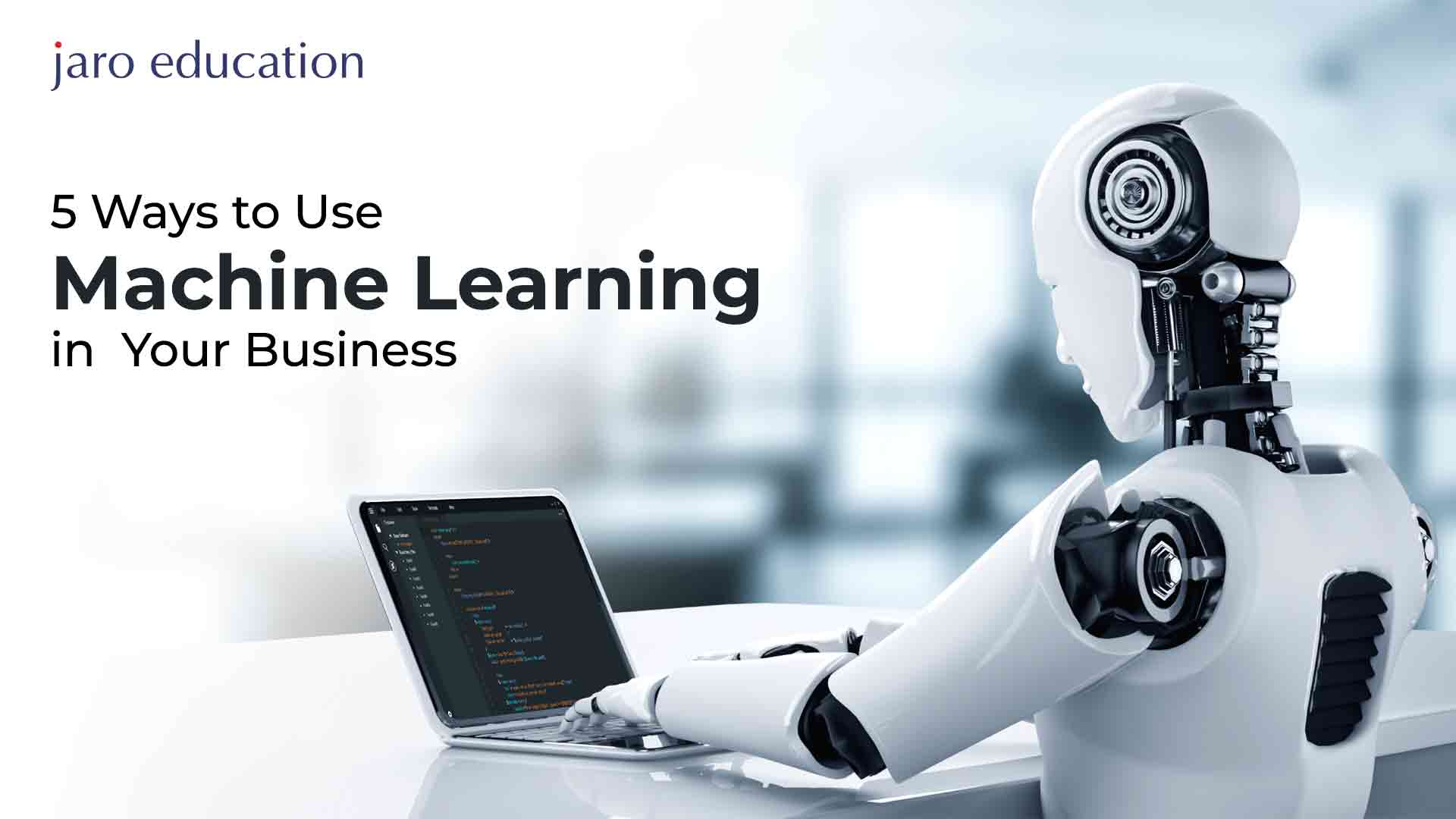Computers may be taught to learn from data without being explicitly programmed using a technique called machine learning. It entails the creation of mathematical formulas and statistical models that allow computers to carry out specific tasks—like analysing patterns or generating predictions—without having to be explicitly taught to do so.
Machine learning (ML) is an effective technology that businesses may use to enhance productivity, boost efficiency, and gain a competitive advantage. Here are five ways businesses might benefit from Machine Learning.
1. Predictive Analysis
Predictive analysis is a subset of machine learning (ML) that analyses past data and makes predictions using statistical methods and models. In order to forecast upcoming events or actions, it is utilised to find patterns and trends in data.
Predictive analysis has a number of benefits, one of which is that it enables firms to make data-driven decisions rather than depending solely on gut feelings or assumptions. Predictive analysis can find hidden insights and patterns that would be challenging to find manually by examining massive amounts of data. Businesses may be able to find new opportunities and make better decisions as a result.
2. Customer Segmentation
The process of categorising clients based on their traits, habits, and demographics is known as customer segmentation. In the context of machine learning (ML), it alludes to the application of ML algorithms to consumer data analysis and pattern recognition in order to find trends that can be used to divide customers into various groups.
Businesses can utilise consumer segmentation in various ways to enhance their processes and boost sales. Businesses can target certain groups of customers and improve the success of their marketing initiatives, for instance, by segmenting clients
based on their demographics and purchasing patterns. Businesses can make individualised recommendations and offers by segmenting customers based on their behaviour, such as their browsing and purchase patterns. This can strengthen customer loyalty and boost sales.
3. Inventory Optimization
The technique of maintaining and modifying inventory levels to save costs while meeting customer demand is known as inventory optimization. Machine learning (ML) can be utilised to improve inventory by evaluating data and forecasting upcoming trends and consumer behaviour. Businesses can utilise ML for inventory optimisation in a number of ways, including:
- Prediction sales
- Classification of inventory
- Optimising safety stock
- Predicting lead time
- Optimising multi-echelon inventory
Overall, by ensuring that products are always available when customers need them, utilising ML for inventory optimisation can help organisations decrease waste, increase productivity, and improve customer happiness.
4. Fraud Detection
One of the main applications of machine learning (ML) is fraud detection. Identifying and preventing fraudulent acts, such as credit card fraud, money laundering, and identity theft, is the process of fraud detection. Large volumes of data can be analysed using ML algorithms to detect fraudulent activity trends .
Supervised learning is one of the most used ML methods for fraud detection. In order to do this, a model must be trained on a labelled dataset that contains previous information on both fraudulent and lawful activity. The model then employs this knowledge to find patterns and forecast outcomes for fresh, unlabeled data.
5. Chatbots & Virtual Assistance
Examples of how firms can use machine learning (ML) to enhance customer service and automate operations include chatbots and virtual assistants.
Computer programmes known as “chatbots” that mimic human dialogue can be included into a company’s website, smartphone application, or messaging services like Facebook Messenger, WhatsApp, and WeChat. Chatbots are capable of doing a wide range of functions, including executing transactions, recommending products or services, and responding to consumer inquiries.
On the other hand, virtual assistants are computer programmes that can comprehend and react to voice instructions in natural language, enabling users to engage with their devices or applications via voice commands.
Now that you know the various uses of machine learning, do you wish to pursue a career in cognitive technology that is going to dominate the future? If yes, then the machine learning course shall redefine your future.
Advanced Professional Certification Programme in Data Science & Machine Learning
Learn the secrets of data science and machine learning architecture to modernise tomorrow’s businesses with clever methods and tools. Utilize the favoured tools and methods to support tactical and strategic actions. Develop your area of expertise and establish a new bar for excellence in your data-driven profession. Develop high-quality pedagogy that combines theory and practise in the best possible way. By pursuing an Advanced Professional Certification Program in Data Science & Machine Learning from India’s top E&ICT institution, IIT Guwahati, you can raise the bar for excellence in your professional life.
Conclusion
To sum up, there are a variety of ways that companies may use machine learning to enhance their processes and acquire a competitive edge. Using machine learning for natural language processing to enhance customer service and communication, using machine learning for image and video analysis to enhance product recommendations and personalization, using machine learning for fraud detection and security, and using machine learning for automation and optimisation of business processes are a few examples. Businesses may enhance customer happiness, get useful insights, and streamline processes by utilising the power of machine learning.






